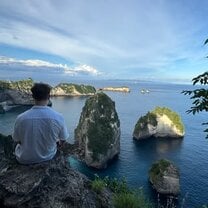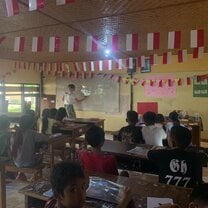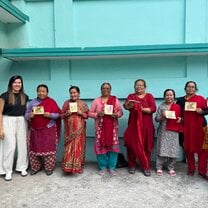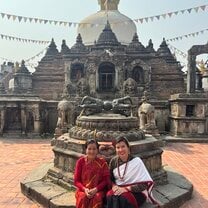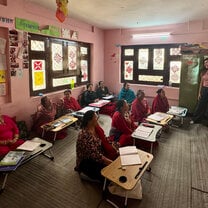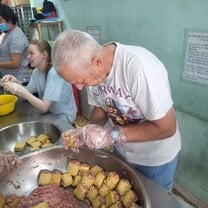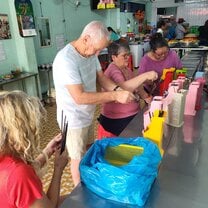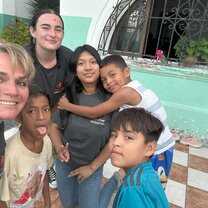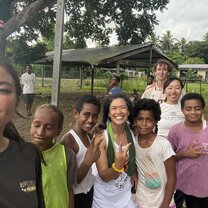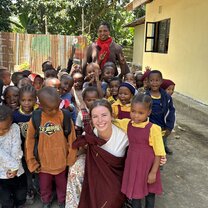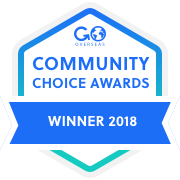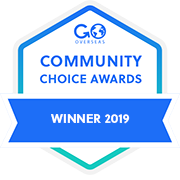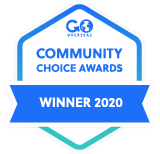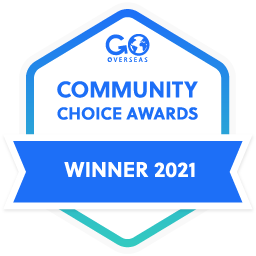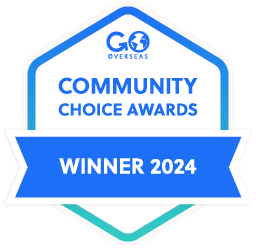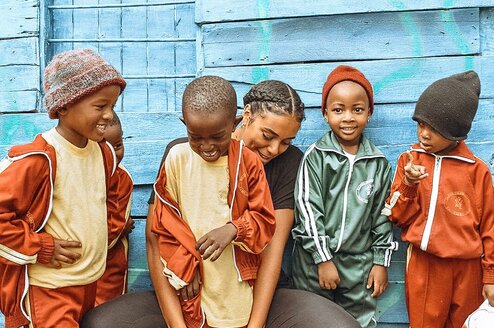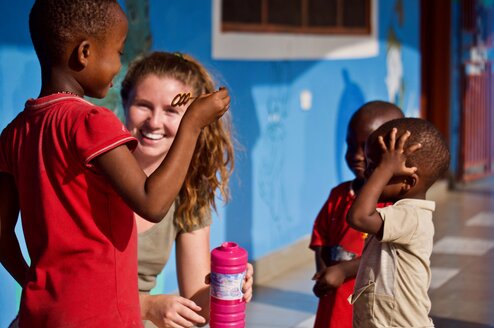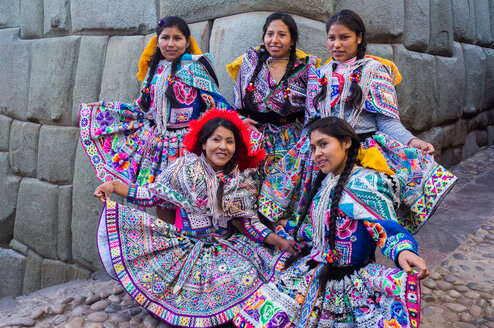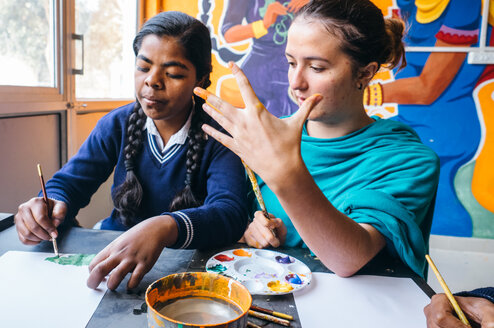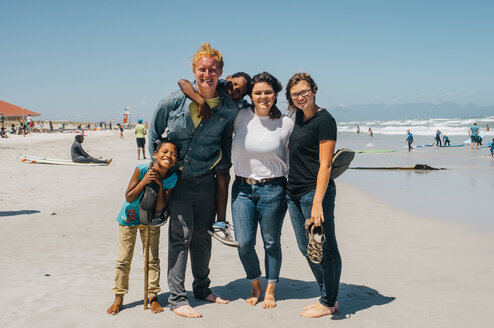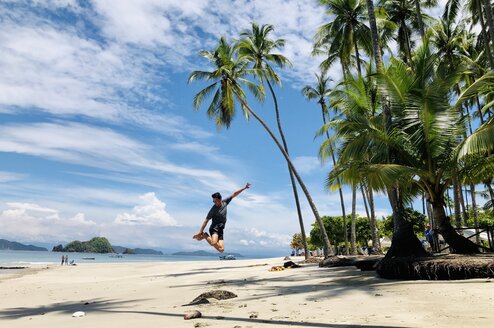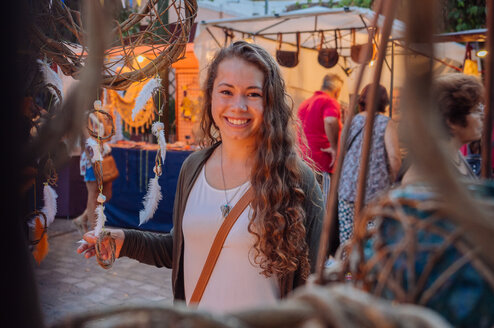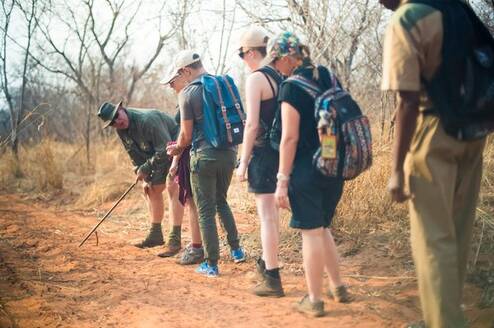Why did you choose this program?
I chose IVHQ because it was well-reviewed online and seemed like a reliable organization. I appreciated that they were a b-corporation and that the funds that participants pay into their programs support the on-the-ground teams in their home countries meaning our volunteer tourism isn't displacing local staff.
My focus was on the Costa Rican sea turtle program because I care greatly about our waterways and the preservation and protection of marine life.
What did your program provider (or university) assist you with, and what did you have to organize on your own?
IVHQ provided a pretty good briefing of the program along with links to resources like travel insurance, travel medications, etc. There was also a good run-down of visa requirements by country. Program fees and payments covered travel from the airport, 3 meals at day on-site, money for bus tickets to the program site, and a decent orientation. I had to pay extra for the ride back to the airport following my stay, but that was fine. I also had to cover some short bus hops around San Jose before we got to our final location about 5 hours from the city.
What is one piece of advice you'd give to someone going on your program?
The best advice I can give is to make sure you have at least some basic survival Spanish under your belt. I do and I was grateful because it made travel to and from the bus terminal and the five-hour trip much easier. Many folks in Costa Rica speak some English, but I wouldn't rely on that. It's important to be able to ask for directions, confirm you're going on the right bus, order food or make purchases, and ask for help in an emergency. They do pair folks together in cohorts for the travel, but I was the only person with any level of Spanish. I know I felt a lot better having it, but the more speakers, the better.
Also, on-site, you'll need to be prepared. It's hot. It's wet. You will never feel cool or dry. Pack extra socks. You will not have too many. Bring shoes that you don't mind getting wet and that dry quickly. You will be walking through water and dense mud on night patrol.
If you're someone who doesn't like working at night or pre-dawn, this isn't the program for you. Be prepared to walk anywhere from 4 to 20 miles a day. Be prepared for sudden rainstorms. Be prepared to work hard and challenge yourself.
Bring a high-quality, high-lumen flashlight. Even better, bring two. The folks running the turtle center could always use more. Bring extra-strength bug repellant. If you are sensitive to mosquito bites or tend to attract mosquitos, this may not be the program for you.
Come ready to work. Come with a passion for wildlife and ocean conservation. If you love sea turtles and nature, you'll be headed to the right place. You'll get out what you put in. It is absolutely worth it. If you are a partier, go elsewhere. This isn't a vacation spot, this is a passion project. Bring your passion and keep the liquor at home. This isn't a cheap holiday- it's someone's life's work. Respect it.
What does an average day/week look like as a participant of this program?
You will wake up around 3-3:30 am for early morning shifts walk about a mile to the beach, and then patrol for about 5-7 miles or so up and down the beach. You may be with a group that's willing to go slow and put in the work to find turtle tracks. If not, you may need to exercise patience with others who are not used to walking or have regrets about their project choice. Either way, bring a good red-light flashlight and put in the work. Be kind to others, but firm about your commitment to finding turtle tracks and eggs. During the search, you may find tracks, or you may not. You may find eggs and notify project leadership. If you find eggs, a group will join you and help you relocate them to the hatchery. You'll dig to about your shoulder to get to the nest. Then you'll carefully collect the eggs and dig another hole of the same length in a clean spot to relocate the eggs.
You'll have breakfast around 7-9 am. If you're not on morning patrol, you will likely be working at the hatchery that day and taking to visitors. You'll walk the mile from your accommodations back to the beach. Again, knowing Spanish helps, although many visitors to the beach do speak English, so not knowing the language isn't a deal breaker. Greet visitors, sell tee-shirts and merch to fundraise for the hatchery.
Lunch follows hatchery work.
Following that you may be given field work. That may include engaging in a "bucket brigade" transporting sand from an empty nest in the hatchery and replacing the nesting spot with clean sand. You'll be digging down to about 5 feet or so for this. You'll be working in a team to haul sand. You may do some training demonstrations for visitors on how to find sea turtle eggs make demo turtle tracks and bury ping pong balls as sample eggs. That's a lot of fun.
Also, you'll be sent on garbage clean-up patrols along the beach. Some of your fellow volunteers may use this as an excuse to hide away and go swimming. Try to be patient and go clean up with or without them. Remember, this is a turtle nesting spot and you are making their home safe from toxins and plastics by cleaning up their nesting areas. It is worth it.
Following that is dinner time and another mile walk each way to your homestay and back.
In the evening you may get an 8 pm or 11 pm night patrol. Sometimes tourists will join you on the beach. Sometimes you may encounter poachers, but they will probably leave you alone since they're more worried about getting in trouble. Occasionally there will be a turtle hatching. This may happen any time in the day or night. If it's during the day, the community will be invited to join the volunteers and help release the baby turtles into the sea. It is an amazing experience.
Going into your experience abroad, what was your biggest fear, and how did you overcome it? How did your views on the issue change?
I was a bit concerned if I could handle the heat and intensive work, but I was surprised by my endurance. I think part of that came from drinking lots of water and pacing myself. Part of it came from an earnest desire to push myself and do the hard work. Also, frankly, all the walking and hydration and avoidance of between-meal snacking was actually incredibly good for me. I think I'll take those habits with me now that I'm back in the US.
Is there a particular type of person that would most enjoy this project?
I think this project is good for anyone who has the physical capacity and endurance to tolerate the heat and exertion. The most successful volunteers I saw during my trip were the ones who were reliable and dedicated to the project. There were folks in their late teens who had the maturity and resolve that far exceeded those of their much older fellow participants. I think at the end of the day it comes down to intention and attitude rather than any other factor.

